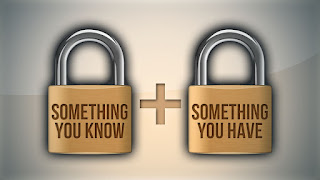Should you get your CCSK? Here's 5 reasons why I have decided to get mine:
The Cloud Security Alliance is on the forefront of cloud security. In their words, the CSA "is the world’s leading organization dedicated to defining and raising awareness of best practices to help ensure a secure cloud computing environment." |
| More info at https://www.udemy.com/csa-certificate-of-cloud-technology-security-knowledge-ccsk/learn/v4/overview |
And to further that end, the CSA has been offering the Certificate of Cloud Security Knowledge (CCSK) since 2010, and it's popularity is growing. I'd like to share five reasons why I've decided to get this professional certification.
1: I love to be at the intersection of major trends. Cloud computing is "hot" and jobs are plentiful, and growing. Additionally, security is hot and security professionals are in demand too. So what could be more fun and HOT than being an expert in both cloud computing and cloud cybersecurity? The demand for cloud security experts will be fantastic, and because of the amount of training and education it requires, there isn't that much competition!
2: The CCSA has a rock solid reputation. When it comes to cloud security, because it's vendor neutral, the CCSK has a solid reputation as an authority on real-world cloud security frameworks and best practices, so if you're going to be in this field, this is the organization to align yourself with and to learn from.
3: It will speed up cloud adoption. One of the biggest concerns that EVERYONE has about cloud adoption is the perceived "security risk" it entails. The way I see it, the more people who are experts at cloud security, the more cloud technologies will be adopted successfully, and I think overall that cloud adoption enables the potential for tremendous advancements for humanity.
4: From a purely financial standpoint, its a great investment! If you're good at self studying, you can invest as little as the cost of taking the test (currently $345), and get a certification that could add hundreds of thousands of dollars to your income over the next 10-20 years. It's an excellent long-term career investment with a huge return on that investment (ROI).
5: It will make you a better cloud architect, or DevOps engineer, or whatever type of I.T. you do. Having the body of knowledge required to achieve this certification will make me (and you) better at what we do. We'll be more competent, more well-rounded, and more security aware - and that can NEVER be a bad thing!
So if you're pursuing a career in cloud computing, I think you should strongly consider getting your CCSK certification. The training can be highly affordable too - I'm currently taking a course I found on Udemy.com that cost me all of $19 for 62 lectures constituting 9 hours of video training. More information on that course can be found HERE.
I'd love to hear your reasons on why you have decided to get your CCSK, or have decided NOT to. Either way, share your thoughts!
Update 4/10/17 I am happy to report that I passed my test and I am now CCSK certified!
 |
| Here's the proof! :-) |



